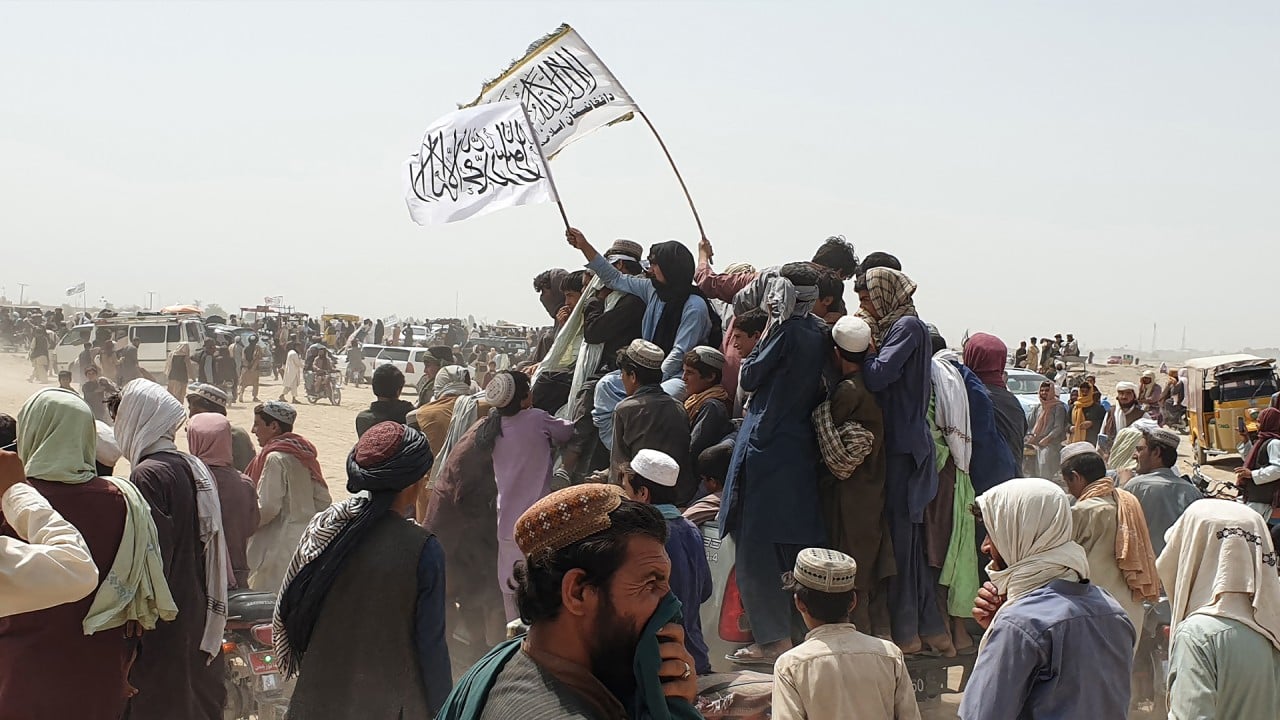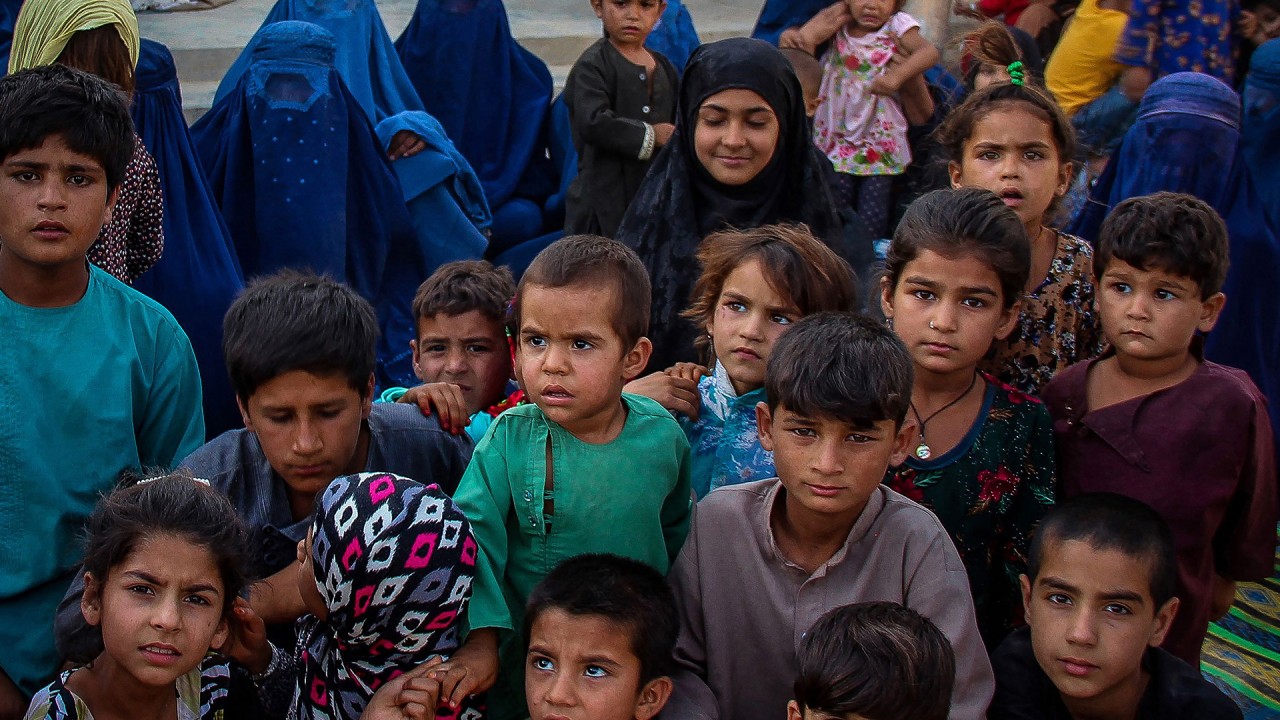
Could Afghanistan crisis give Shanghai Cooperation Organisation the key role China wants for bloc?
- Chinese Foreign Minister Wang Yi has urged the bloc to play a central part in bringing about peace and stability, but questions about its effectiveness remain
- Moscow and Beijing have competing visions about what its focus should be
Since its foundation 20 years ago, the Shanghai Cooperation Organisation, a bloc founded by Russia and China, has faced questions over its purpose.
The issue was high on the agenda at an SCO meeting in the Tajik capital Dushanbe on Wednesday, where Chinese Foreign Minister Wang Yi urged the “SCO to play a key role in achieving peace and reconciliation in Afghanistan”.
He continued that he hoped the group would “find a path of regional cooperation that conforms to the trend of the times” and “plays a bigger role in regional and international affairs”.
Observers said Beijing was hoping to use the bloc to gain a foothold in Central Asia – part of its effort to counter US influence – and the situation in Afghanistan was a test case of how it could resolve regional conflict.
Founding
It started off in 2001 as the “Shanghai Five” of China, Kazakhstan, Kyrgyzstan, Russia and Tajikistan, a group initially set up to resolve border disputes.
It has since expanded to a eight-member club – with Uzbekistan, India and Pakistan – and aims to address security concerns in Eurasia, particularly what China describes as the “three evils” of terrorism, separatism and religious extremism.
Four countries – Afghanistan, Belarus, Iran, and Mongolia – hold observer status, while last month Egypt and Saudi Arabia became the bloc’s latest dialogue partners, joining Armenia, Azerbaijan, Cambodia, Nepal, Sri Lanka and Turkey.
The bloc has denied that it is an effort to form a Warsaw Pact-style counterweight to Nato, preferring to describe itself as a Eurasian security-focused group.
It has also been described as a way for China to increased its engagement in South and Central Asia, where – in contrast to Russia – it has traditionally lacked geopolitical clout.

01:42
Taliban claims key border crossings in Afghanistan as US commander departs country
Limitations
Critics have, however, expressed doubts about the effectiveness of the organisation due to a few long-standing problems.
Tensions between India and Pakistan over Kashmir stretch back decades, and India’s own border dispute with China boiled over into a deadly clash last year.
Meanwhile, the co-founders Russia and China do not appear to be in sync on what the SCO’s role should be.
Beijing has also been seen as using the platform to contain what it calls the “spillover effect” from neighbouring states because it fears this will create further political instability inside its own borders.
However, Moscow has been more keen to present the SCO as a geopolitical bloc with anti-Western leanings.
But their mutual rivalry with the United States has seen China and Russia present an increasingly united front, and they have vowed to deepen cooperation in a wide range of fields, ranging from space travel to global governance.

The changed importance of SCO to China
Meanwhile, the diplomatic and economic value of the Central Asian member states has increased for Beijing.
The Belt and Road Initiative – a vast global infrastructure development plan that aims to boost China’s trade links across Asia, Africa, Europe and beyond – was unveiled by Xi during his 2013 visit to Kazakhstan, underscoring the project’s significance to the region.
Two of the network’s key “economic corridors” – which include special economic zones, energy and transport infrastructure – pass through Central and South Asia. The corridor through Pakistan is strategically important for China to provide an alternative route for oil and gas coming from the Middle East, rather than going via the Strait of Malacca.
Chinese companies also invested nearly US$50 billion in Kazakhstan, Kyrgyzstan, Tajikistan and Uzbekistan between 2005 and 2020, according to the China Global Investment Tracker of the American Enterprise Institute.
Although the region is not top of the list in terms of China’s overseas investments, it is of huge significance because the country is the world’s largest oil and gas importer and most of its trade in Central Asia involves energy.
But Beijing regards security and stability as the key to further economic success and stronger ties with Central Asia and sees the SCO, which promotes intelligence sharing and joint exercises among members, as a key element.
The organisation says member countries destroyed more than 500 training bases for armed militants and arrested some 2,000 members of “international terrorist organisations” between 2013 and 2017.

02:26
Thousands flee as Taliban surges in Afghanistan
Future
While all SCO members have called for peace in Afghanistan, they have vastly different interests.
Raffaello Pantucci, senior fellow at the S Rajaratnam School of International Studies, said most of the members of the SCO wanted to tackle Afghanistan on a bilateral basis, or with partners like the United States, rather than relying on the grouping.
“There is little evidence that the SCO has actually done anything, notwithstanding the fact that it is a multilateral security organisation, with security aspects which includes in some form all of Afghanistan’s neighbours,” Pantucci said.
“It is hard to see this changing going forwards as the SCO has largely eschewed any leadership role in things and it lacks the structures or tools to actually implement change on the ground in Afghanistan.
“It also has no experience as an institution in working on peace and security issues beyond training and coordination, raising the question of what it would actually bring to the party at this stage.”
But Pantucci said the SCO would remain one of the tools at Beijing’s disposal when it came to tackling Afghanistan.
“[The] long-term vision is to craft a region in Beijing’s image, where there is none of the value judgment that comes with Western democratising organisations, but rather a gentle consensus building that lets people develop and do what they want while giving China a structure to continue to steer the conversation when they want to.”
Li Wei, a counterterrorism analyst at the China Institutes of Contemporary International Relations in Beijing, said: “What we see now is a result of the US not being able to resolve the problems in Afghanistan. And the lesson that we should learn from this – is probably that foreign powers that interfere in Afghanistan will only bring more instability and disturbance, rather than peace and stability.”
But Li said he believed that the country’s future lay within the SCO, which could help with the country’s reconstruction and development as a way of helping it towards full membership and restoring stability.
“The situation in Afghanistan will affect the extremist organisations and terrorist organisations remaining there … and it is going to have a profound impact on the member states of the SCO.”
Additional reporting by Jun Mai

